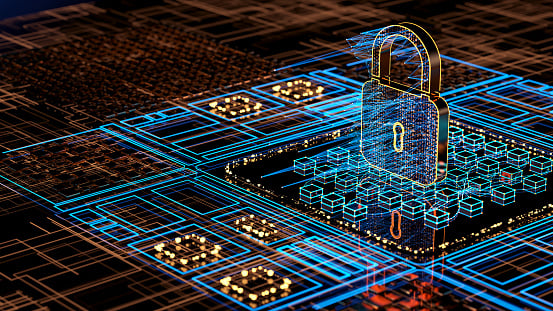As technology advances, it opens up new possibilities and forward-thinking leaders are recognizing its value and preparing for new challenges. It's not enough to simply embrace digital: the next great leap forward is to become genuine digital businesses,embracing the blockchain technology revolution and considering the numerous benefits of tokenizing corporate assets.
The evolution of the digital economy has led to the concept of tokenization, which is revolutionizing how businesses manage their assets. Tokens provide a new level of exchange within the blockchain, going beyond cryptocurrencies (digital value units designed to work exclusively on the blockchain infrastructure), with significant benefits for companies.
The topic is complex; let's go step by step:
What is a token?
A token is a a set of digital information on a blockchain that confers a right of ownership upon a particular individual and has a precise value only within a well-defined context.
They can be thought of as analogous to casino tokens or chips, i.e., pieces assigned a recognized value only within the context where they can be used.
What is the blockchain?
Referring to a “chain of nodes”, a blockchain is a computer-based technology that securely and unequivocally manages a public ledger (a type of digital register), comprising a series of data and information, that certifies transactions and allows them to be tracked. It functions in a decentralized environment that is accessible to all and requires no supervising central authority. Blockchain technologies are an integral part of the vast family of Distributed Ledger Technology (DLT), comprising systems based on distributed ledgers that can be read and edited from multiple nodes within a network. With no central authority, the nodes (computational accounts that track the transactions) must reach an agreement in order to validate the changes made to the ledger.
The blockchain thus has three features: transparency, immutability and decentralization.
Tokenization of corporate assets: what does it mean and how does it work?
Technically speaking, the tokenization of assets means creating a computer code that captures the key elements of the asset, while at the same time offering a means of interacting with its digital version (digital twin).
To understand how asset tokenization works, we must first understand the role that smart contracts play in transforming an actual asset into its digital version.
In contrast to traditional contracts, the conditions of the smart contracts between the parties are translated into code and added to the blockchain network; this means that a smart contract is executed automatically. Based on the computational logic If This Then That (ITTT), the tokens can be delivered directly to investors, when the contractual conditions are met, by means of the smart contract. The process provides transparency, precision and efficiency, thanks to the public availability of contractual terms and historical data.
The role of oracles
Blockchains and smart contracts don't have direct access to information in the outside world. So, if they were based only on the information available on their network, their use would be extremely limited. Their scope and reach can be extended by “oracles” that obtain and validate external sources, allowing to see the outcome of smart contracts and, when added to a blockchain (decentralized), provide even greater reliability, security and transparency.
Let's imagine a bet, which is subject to a smart contract, made between two people on an external event, such as a sports match or a horse race. The information on the winner isn't available directly on the blockchain, but can be obtained by an external entity, the “oracle”.
The oracle plays a crucial role here: as a reliable intermediary, it retrieves and validates the result of the game in question. Once it gets the result, the oracle transmits it to the smart contract, thus authorizing it to pay the bets.
This mechanism ensures that the outcome of the bet is reliable and transparent, since the result is confirmed by an external, independent and verifiable entity.

What are the benefits of tokenization for companies?
Here are some key advantages that come with asset tokenization:
- A wider access to investors from all over the world, crossing geographic borders and offering investment opportunities to a broader public.
- Entry on the blockchain involves moving from the private to the public domain, thus enabling a more accurate assessment of the asset's value.
- Subdividing assets enables several people to own a part of the asset, encouraging micro-ownership. Not only does this raise the brand's profile, it also enables a wider public to make investments and diversify portfolios.
- It also improves economic efficiency. Reduced brokerage costs facilitate a more efficient transaction management, while the automation and elimination of intermediaries reduces execution times.
- The smart contracts that regulate tokens can be programmed to reward stakeholders for their virtuous behavior, creating an additional incentive for them to make a positive contribution.
- As well as improving efficiency and liquidity, it also reduces the red tape associated with the process.
- The underlying blockchain technology means that all stakeholders have the ability to carry out comprehensive audits on every aspect of the platform, ensuring greater transparency and shared control.
- Assets and shares can therefore be transferred electronically without the need for signed paper documents or intermediaries such as banks or professional custodians.
While there are no particular limitations to what can be tokenized, these are a few examples: corporate or personal assets (property, documents, company balance sheets), shares, and investment funds (securities).
It's crucial, however, to rely on professionals who possess a deep understanding of blockchain technology and the world of tokens. At Ander Group, we work daily with Goodcode, our technological partner, who boasts extensive knowledge in blockchain, secure document storage, KYC, oracle creation, escrow contract services, as well as tailor-made smart contracts, to provide the most comprehensive support to our clients.
Interested in exploring the benefits for your business?




